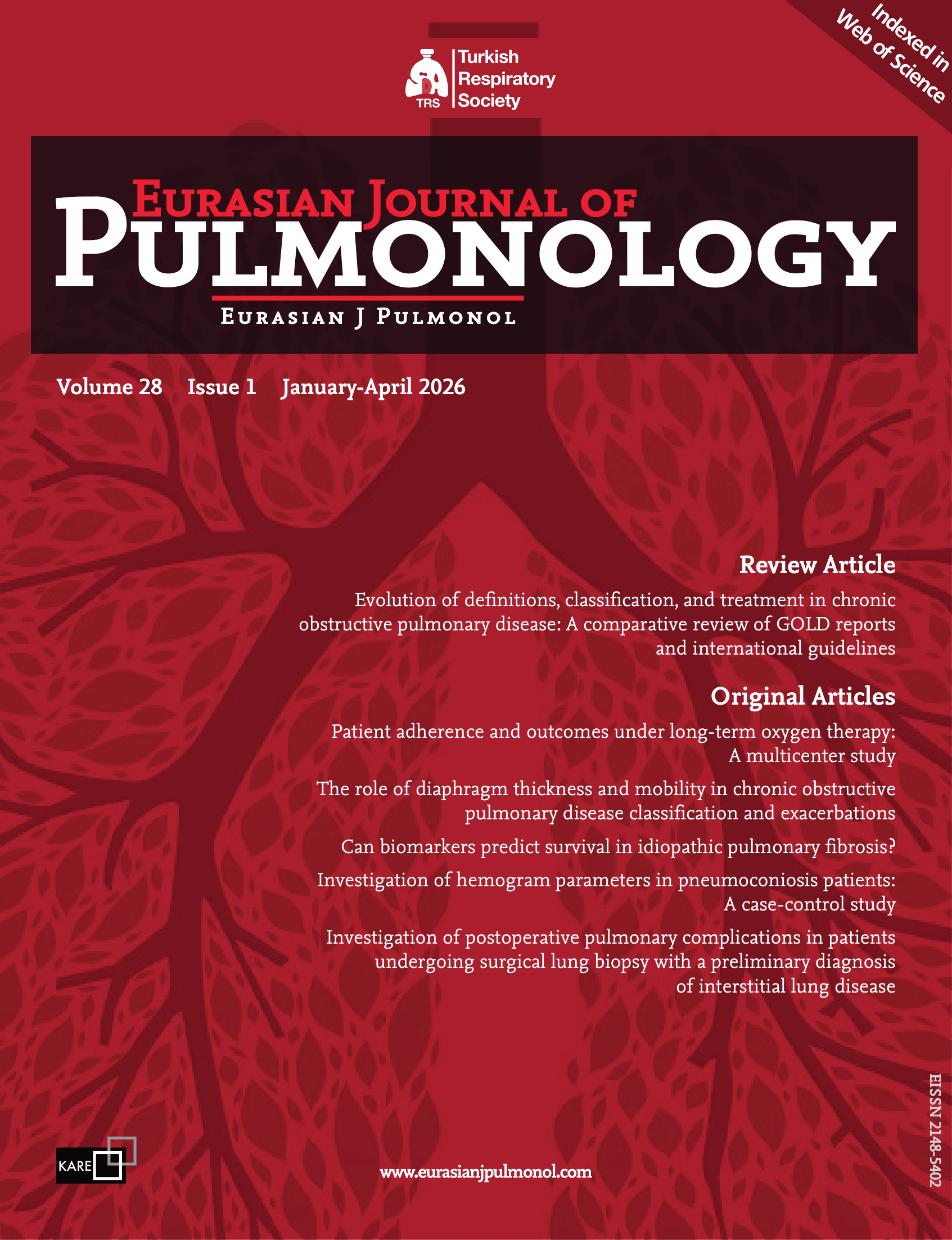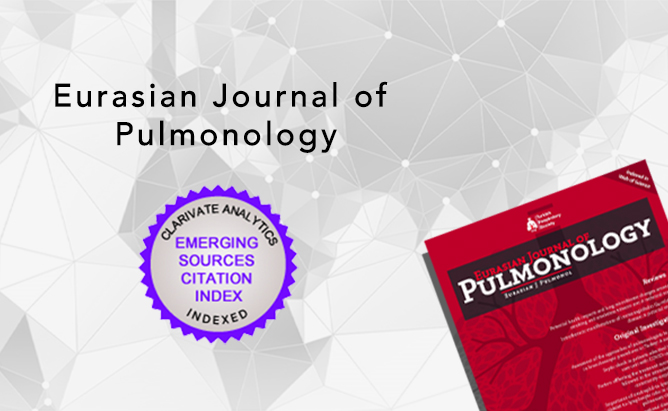2Department of Biochemistery, Sutcu Imam University Faculty of Medicine, Kahramanmaras, Türkiye
3Department of Infectious Diseases and Clinical Microbiology, Sutcu Imam University Faculty of Medicine, Kahramanmaras, Türkiye
4Department of Microbiology, Sutcu Imam University Faculty of Medicine, Kahramanmaras, Türkiye
5Department of Radiology, Sutcu Imam University Faculty of Medicine, Kahramanmaras, Türkiye
6Department of Anesthesia and Reanimation, Sutcu Imam University Faculty of Medicine, Kahramanmaras, Türkiye
Abstract
BACKGROUND AND AIM: Coronavirus Disease 2019 (COVID-19) can affect multliple systems simultaneously, particularly the respiratory system. New inflammatory markers have been used to identify high-risk patients and accelerate the decision-making process for admission to intensive care. One of these markers is the Systemic Inflammatory Index (SII), which is a prognostic index associated with peripheral blood parameters such as neutrophils, platelets, and lymphocytes. This study aimed to determine the effect of SII and other inflammatory markers in assessing the need for intensive care.
METHODS: The study included patients over the age of 18 who were admitted to the hospital and hospitalized with COVID-19 pneumonia. They were divided into two groups: those with and without direct admission to intensive care. Demographic, clinical, and laboratory results were obtained retrospectively from the hospital data system.
RESULTS: A total of 335 patients were included in the study. SII, C-reactive protein (CRP), ferritin, and D-dimer values were significantly higher (p<0.05) in the group with direct Intensive Care Unit (ICU) hospitalization. In the multivariate reduced model, a significant independent (p<0.05) efficacy of age, SII, CRP, ferritin and D-dimer values was observed in differentiating patients who required direct ICU hospitalization from those who did not. An SII cutoff value of 127 was found to be significant (area under the curve 0.786) in distinguishing between the two groups.
CONCLUSIONS: COVID-19 leads to alterations in peripheral blood parameters. Clinical symptoms and disease severity may be associated with the levels of inflammatory cells. These parameters should also be examined to determine the need for intensive care and enable prompt treatment initiation.




 Burcu Akkok1
Burcu Akkok1 




